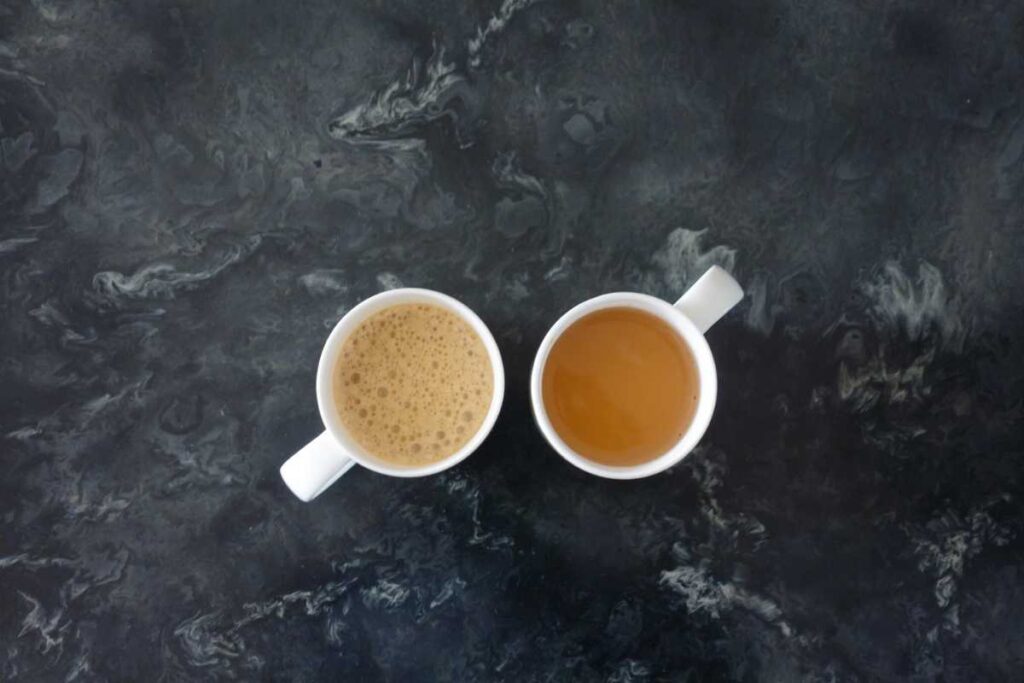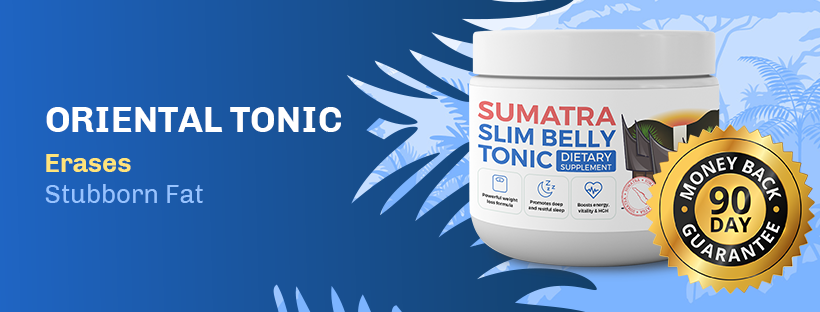Tea vs Coffee: Which is Healthier?

Tea vs Coffee: Which One Should You Drink?
Tea and coffee are two of the most popular beverages consumed worldwide. While tea drinkers consume more cups of tea compared to coffee intake, studies show that tea consumption is associated with lower sugar intake and a balanced diet compared to coffee. Additionally, research suggests that tea can aid in weight management when incorporated into a healthy brew routine. In this article, we’ll explore the differences between these two drinks and help you decide which one is right for you.
Firstly, let’s talk about what makes tea and coffee different. Tea is a drink made by brewing leaves from the Camellia sinensis plant in hot water, usually served in cups. There are many different types of teas, including black, green, white, oolong, and herbal teas, which are popular among caffeine intake enthusiasts. On the other hand, coffee is a beverage made by brewing roasted coffee beans in hot water, often consumed by coffee drinkers in an ounce cup.
Both tea and coffee drinkers can enjoy their favorite beverage in varying cups. A cup of brewed tea contains around 20-60 mg of caffeine while a cup of brewed coffee contains around 95 mg of caffeine on average, depending on the concentration. This makes coffee a better choice for those who need a quick energy boost in the morning or throughout the day, but be careful not to add too much sugar to your cup.
However, if you’re one of the many coffee drinkers who enjoy their daily cups of brew, then drinking coffee might be your go-to choice. But for those who prefer to avoid the side effects of caffeine such as insomnia or nervousness, tea with its lower caffeine content could be a better option.
Another difference between these two drinks is their effect on caffeine intake. Coffee, with its higher caffeine content, can provide a stronger boost of energy compared to teas. However, teas can be consumed in larger cups without causing jitters or disrupting sleep patterns. If you’re someone who wants to limit caffeine intake, teas might be a better choice. This article highlights the taste profiles of coffee and teas, with coffee having a strong bitter taste while teas have more subtle flavors depending on their type. If you’re someone who enjoys bold flavors and aromas, then coffee might be your go-to drink while those who prefer lighter tastes might enjoy teas more.
White tea vs Coffee
White tea is another type of tea that has gained popularity recently due to its potential health benefits such as boosting immunity and reducing inflammation. Studies have shown that white tea has a positive effect on cardiovascular health. Like other types of teas, white tea also contains antioxidants which can help protect against cell damage caused by free radicals. However, it’s important to note that white tea contains less caffeine compared to other types of teas and coffee.
Lipton tea vs Coffee
Lipton is a popular brand of tea that offers a wide range of flavors including black, green, and herbal teas. Like other types of teas, Lipton tea also contains antioxidants and has potential health benefits such as reducing the risk of heart disease and stroke. Studies have shown that the effect of drinking Lipton tea regularly may lead to improved cardiovascular health. While coffee also has some potential health benefits such as reducing the risk of type 2 diabetes and liver cancer, studies suggest that excessive coffee consumption may have adverse effects on health.
What is more popular tea or coffee?
Both tea and coffee are popular beverages worldwide with their own unique taste profiles, caffeine content, and potential health benefits. According to research, coffee intake is higher in countries like the United States while tea consumption is higher in countries like China and India.
Health Benefits of Tea vs Coffee
Tea and coffee are two of the most popular beverages around the world. While both have their unique taste and aroma, they also differ in terms of health benefits. In this section, we will explore the health benefits of tea vs coffee.
Firstly, let’s talk about tea. Tea is rich in antioxidants known as flavonoids that can help reduce the risk of chronic diseases such as cancer and heart disease. These antioxidants protect our cells from damage caused by free radicals, which are unstable molecules that can harm our cells. Drinking tea has been shown to improve heart health by reducing blood pressure and cholesterol levels.
On the other hand, tea drinkers can opt for green tea, which is also known for its ability to improve cognitive function and reduce the risk of Alzheimer’s and Parkinson’s disease. This is due to the antioxidants present in green tea bags, which stimulate our brain and nervous system. Moreover, green tea can increase metabolism and aid in weight loss, just like coffee.
One significant difference between tea and coffee is their caffeine content. Tea contains less caffeine than coffee, making it a better choice for those who are sensitive to caffeine or looking to cut down on their intake.
Herbal teas have various health benefits depending on the type of herb used. For example, drinking chamomile tea has calming properties that can help with anxiety and insomnia while peppermint tea can aid digestion. However, if you prefer drinking coffee, it is important to note that excessive consumption may lead to negative effects on your health.
Incorporating Tea into Your Diet for Overall Wellbeing
Herbal teas are an excellent alternative to sugary beverages, and they can improve your overall wellbeing by promoting hydration. Not only that, but different types of tea offer various health benefits that can help you achieve a balanced diet. If you’re someone who enjoys drinking coffee, trying out herbal teas could be a great way to switch up your routine.
Green tea is one such beverage that contains catechins, which have been linked to weight loss and improved heart health. Catechins may also help reduce inflammation in the body and lower blood pressure. Drinking green tea regularly has been shown to increase fat burning during exercise, making it a great addition to your fitness routine.
White tea is another type of tea that is high in theanine, an amino acid that has been found to reduce stress levels and improve sleep quality. Theanine promotes relaxation without causing drowsiness, making it a perfect choice for those who struggle with anxiety or insomnia.
Black tea is a good source of caffeine for those looking to reduce their coffee intake. While black tea contains less caffeine than coffee, it still provides enough energy boost without causing jitters or crashes. Black tea also has antioxidants that help prevent cell damage from free radicals.
Incorporating herbal teas into your daily consumption can provide a variety of compounds that promote overall wellbeing. For instance, chamomile tea has anti-inflammatory properties and may help relieve symptoms of anxiety and depression. Peppermint tea can aid digestion and alleviate nausea while ginger tea reduces inflammation in the body.
To make drinking herbal teas more enjoyable, try experimenting with different flavors and brewing methods. You can add honey or lemon juice for added sweetness or use loose-leaf teas instead of teabags for better quality flavor.
Energy Boosting Effects: Coffee vs Tea
Looking for a quick energy boost to get you through the day? Both coffee and tea are popular choices, but which one is better for improving energy levels? Let’s take a closer look at the energy-boosting effects of coffee vs tea.
First, let’s talk about caffeine. Coffee contains more caffeine than tea, which can provide a stronger energy boost. Caffeine works by blocking adenosine receptors in the brain, which can make you feel more alert and awake. However, it’s important to note that too much caffeine can lead to jitters, anxiety, and even heart palpitations.
On the other hand, tea contains L-theanine, an amino acid that can help improve focus and mental clarity without the jitters. L-theanine has been shown to increase alpha brain waves, which are associated with relaxation and creativity. This means that drinking tea may help you feel more focused and productive without feeling overly stimulated.
Another difference between coffee and tea is how long their energy-boosting effects last. The energy boost from coffee is typically short-lived and can lead to a crash later on. This is because caffeine is quickly metabolized by the body. In contrast, tea provides a more sustained energy lift thanks to its combination of caffeine and L-theanine.
Of course, everyone’s tolerance to caffeine varies depending on individual consumption habits. Some people may find that they need several cups of coffee to feel energized while others may only need one cup of tea. It’s also worth noting that certain types of teas contain more or less caffeine than others – for example, black tea generally contains more caffeine than green or white teas.
Caffeine in Coffee vs Tea: Taste and Amount
Coffee and tea are two of the most popular beverages in the world. While both can provide a much-needed boost of energy, they differ in their caffeine content, taste, and amounts. Let’s take a closer look at how these two drinks compare when it comes to caffeine.
Firstly, it’s essential to note that coffee has a higher caffeine content than tea. On average, an 8-ounce cup of coffee contains around 95 milligrams of caffeine compared to tea’s 47 milligrams. However, it’s worth noting that the amount of caffeine in coffee can vary depending on factors such as the type of bean used, roast level, and brewing method. In contrast, tea’s caffeine content is more consistent across different types.
Coffee and tea have distinct flavors that appeal to different palates. Coffee is generally known for its bold and bitter taste profile due to its high concentration of compounds like chlorogenic acid and quinic acid. On the other hand, tea offers a range of flavors from earthy and grassy notes in green teas to floral and fruity undertones in black teas.
Despite having less caffeine than coffee on average, tea can still provide an energy boost thanks to its unique blend of compounds like theophylline and L-theanine. Theophylline is a natural stimulant found in tea leaves that can help increase heart rate and improve breathing function. Meanwhile, L-theanine is an amino acid known for promoting relaxation while also improving focus and mental clarity.
Potential Cancer Prevention with Tea
Tea has been a popular beverage for centuries, and its health benefits have been widely studied. One of the most promising areas of research is the potential cancer prevention with tea.
Tea contains polyphenols, which are natural compounds that have antioxidant properties. Antioxidants help protect cells from damage caused by free radicals, which are unstable molecules that can harm cells and contribute to the development of diseases such as cancer.
Studies have found that tea polyphenols can reduce the risk of various cancers, including breast cancer. In one study, women who drank green tea regularly had a lower risk of developing breast cancer than those who didn’t drink it. Another study found that drinking black tea was associated with a reduced risk of ovarian cancer.
The polyphenols in tea may also help prevent cancer cells from growing and spreading in the body. In laboratory studies, tea polyphenols were found to inhibit the growth and division of cancer cells in various types of cancers, including breast, lung, prostate, and colon cancers.
Chlorogenic acid is another compound found in tea that has been linked to potential cancer prevention. This compound has been shown to reduce the formation of free radicals and protect cells from oxidative damage.
While more research is needed to fully understand how tea can prevent or treat cancer, there is evidence to suggest that incorporating it into your diet could be beneficial. Drinking several cups of green or black tea per day may help reduce your risk of developing certain types of cancers.
In addition to drinking tea, you can also reap its health benefits by using it topically. Tea bags can be used as a compress for skin irritations or eye puffiness due to their anti-inflammatory properties.
Side Effects of Drinking Coffee and Tea
Drinking coffee and tea are popular ways to start the day or push through an afternoon slump. However, these beverages can have significant side effects on our health. Here are some things to consider before reaching for that cup of joe or tea.
Coffee consumption can cause jitters and nervousness due to its high caffeine content. This stimulant can also lead to insomnia for some drinkers, affecting sleep quality and making it difficult to fall asleep at night. Too much caffeine intake can cause headaches, increased heart rate, and digestive problems. If you’re looking for a low-caffeine alternative, green tea is a great option that comes in convenient tea bags.
On the other hand, tea contains less caffeine than coffee and can provide a more gentle boost of alertness without the jittery side effects. Some studies suggest that tea consumption may have positive effects on cognitive function and reduce the risk of certain diseases such as Alzheimer’s disease, Parkinson’s disease, and type 2 diabetes.
While both coffee and tea contain antioxidants that help protect against cell damage from free radicals in our bodies, coffee has been found to be more effective in preventing liver cancer than tea due to its higher antioxidant content.
It is important to note that excessive consumption of either beverage can lead to negative health consequences. For example, drinking too much black tea has been linked with an increased risk of kidney stones due to its high oxalate content. Similarly, excessive coffee consumption has been associated with increased anxiety levels and a higher risk of developing osteoporosis in women.
The Winner Depends on Your Health Goals
The winner between tea and coffee ultimately depends on your health goals. Both beverages have their own unique benefits and drawbacks, which should be considered when choosing which to consume. For those looking for a healthier option, tea may be the better choice due to its potential cancer prevention properties and lower risk of negative side effects. However, for those seeking an energy boost or a stronger caffeine kick, coffee may be the preferred option. Ultimately, it is up to each individual to weigh the pros and cons and make an informed decision based on their personal health goals.




